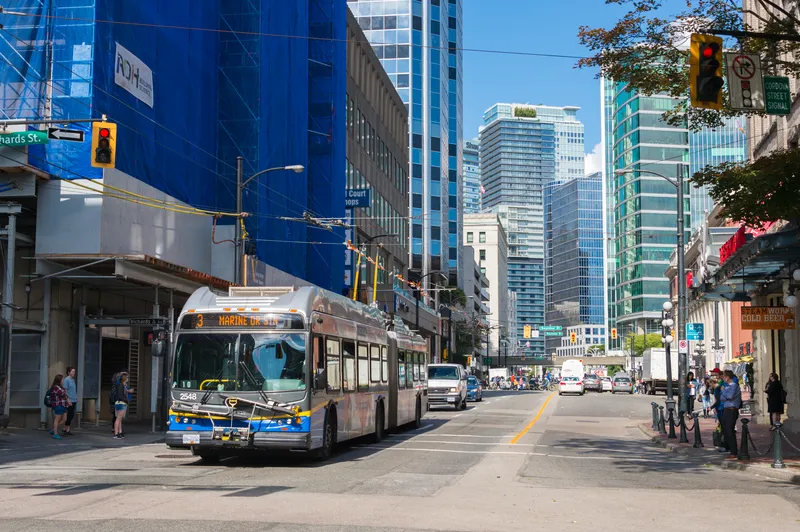
Customers using Vancouver's TransLink services can now pay for transit using Interac Debit - via card or smartphone - on every bus and at every fare gate throughout Metro Vancouver.
It means riders don't have to use an in-station Compass vending machine or having to pre-load a Compass card or wristband after TransLink, Interac, Moneris and Cubic Transportation Systems upgraded more than 5,000 Compass readers to make transit payments more convenient.
TransLink says it is the first transit agency in Canada to fully integrate contactless Interac Debit payments systemwide.
Users users can still use Compass and can also pay with contactless cards and digital wallets.
“We’re focused on making transit more convenient for customers and this upgrade will particularly benefit those who may not have easy access to a credit card," explains Kevin Quinn, CEO of TransLink.
William Keliehor, chief commercial officer of Interac Corp says almost 30 million Canadians already use the card for day-to-day purchases.
"Our recent survey data showed us that 85% of British Columbians agreed that paying for transit should be as easy as buying a cup of coffee. Today’s announcement helps to make that a reality.”
Matt Newsome, general manager, Cubic Transportation Systems, called the move a "big step forward in contactless innovation".







